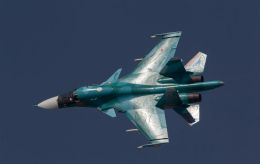Shadow fleet: How Russia circumvents western oil sanctions and Ukraine's struggle against this challenge
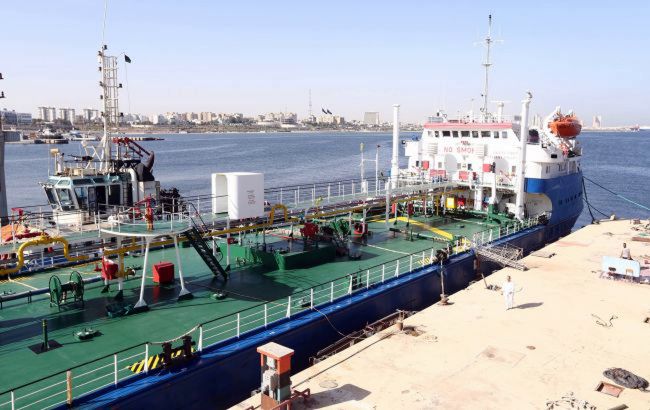 Photo: Russia circumventing western oil sanctions and Ukraine's struggle against this challenge (Getty Images)
Photo: Russia circumventing western oil sanctions and Ukraine's struggle against this challenge (Getty Images)
Despite numerous Western sanctions, Russia continues to find ways to bypass restrictions and maintain steady profits from oil exports. More details on how Russia manages to profit from oil through its "shadow" fleet, how Ukraine is fighting this, and why we have not yet imposed our own sanctions, as we request from our partners, in an article by RBC-Ukraine below.
Contents:
- Price cap on Russian oil
- Russia's shadow fleet
- Cautious western reaction
- How Ukraine is fighting Putin's shadow fleet
In the first half of 2024, Russia's largest shipping company, Sovcomflot, managed to retain its position, albeit with reduced figures.
The company's net profit decreased 34.7% to $323.8 million, and EBITDA fell 32% to $591 million. Revenue dropped by 16.1% to $1.02 billion. These losses are because some of the company's vessels (up to 20) were subjected to sanctions.
However, given the scale of the sanctions, these figures still appear relatively high, indicating two things: Russia's ability to adapt to new conditions and find loopholes to circumvent sanctions, and secondly, the sanctions are too "soft."
Price cap on Russian oil
After Russia's full-scale invasion of Ukraine, European countries quickly began the process of abandoning Russian energy resources. Western nations aimed to inflict maximum damage on the Russian economy by limiting its ability to finance military actions.
The US Department of the Treasury and European partners implemented a price cap mechanism on seaborne supplies of Russian oil and petroleum products, hoping to reduce Russia's revenues and stabilize global energy markets.
This tool was intended to limit prices to $60 per barrel for crude oil, $45 for petroleum products, and $100 for gasoline and diesel. Additionally, a price cap was introduced to limit the price of Russian oil exported to countries that do not support sanctions.
However, this mechanism has proven ineffective and has created additional risks.
This example highlights how challenging it is to control sanction regimes effectively. As demonstrated by the recent situation with Russian oil tankers, six vessels previously under US and UK sanctions could resume operations. This confirms that existing sanctions, which initially seemed sufficient to deter Russia, have weak points allowing continued exports.
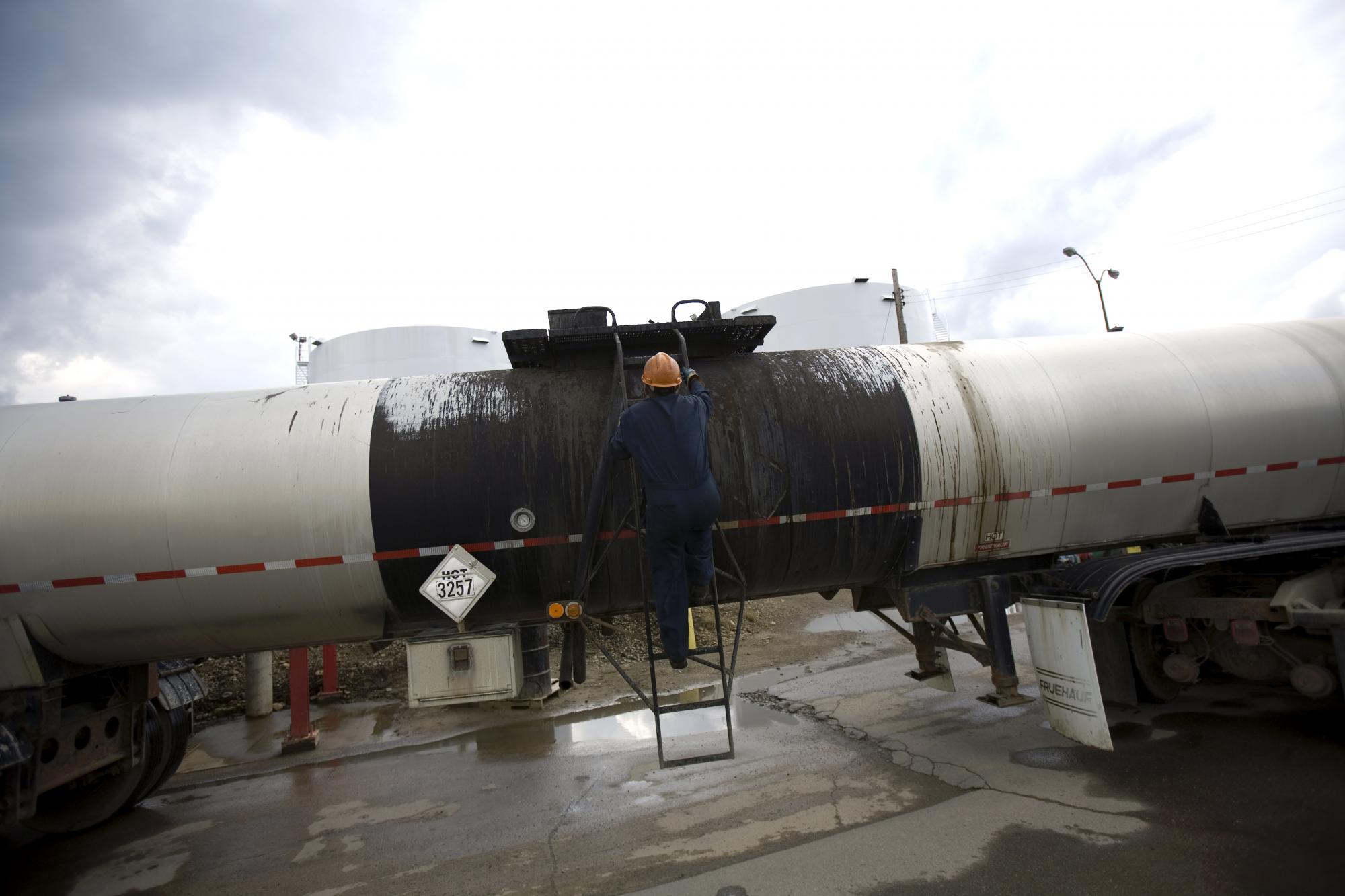
Russia's shadow fleet
As a result of such sanction policies, a new global maritime transport market has emerged, where the shadow fleet of old tankers, which disable transponders from going off the tracking system, plays a significant role. This allows Russia to continue exporting oil in defiance of sanctions.
After Russia's invasion, the volume of oil transshipment by the shadow fleet, according to Vortexa, more than doubled, and this increase was primarily driven by additional transshipment of Russian oil, comments Andrian Prokip, an energy expert at the Ukrainian Institute for the Future.
"This export via the shadow fleet has significantly allowed for the circumvention of Western sanctions and maintained revenues from oil exports, which remain a key component of Russia's exports. These revenues, in turn, help fund the war against Ukraine," he says.
At the same time, Russia prepared for sanctions in advance, actively purchasing tankers, even outdated ones, which would have been scrapped under other conditions.
According to Anatoliy Amelin, co-founder and director of economic programs at the Ukrainian Institute for the Future, Russia currently uses about 600 tankers classified as part of the "shadow fleet." These tankers allow Russia to earn at least $17-18 billion per month from oil exports, emphasizes the President's Commissioner for Sanctions Policy, Vladyslav Vlasiuk.
Amelin notes that, according to Bloomberg, six little-known companies, including those established less than a year ago, are currently exporting about 1.5 million barrels of oil per day from Russia. Among these companies are three from Dubai—Coral Energy, Nord Axis Ltd, and QR Trading—and two from Hong Kong—Concept Oil Services and Bellatrix Energy.
A popular method of transporting oil has become the ship-to-ship (STS) transfer scheme, particularly in the Laconian Gulf of the Aegean Sea. This allows traders to mix Russian oil with other cargo.
"This is a feature of the maritime transport market and the convention on free movement on the high seas. A smaller sanctioned tanker leaves a Russian port, transfers oil to a larger tanker in international waters, then goes to a port and unloads the product, concealing its origin and avoiding sanctions," explains Vlasiuk.
To facilitate the export of Russian oil worldwide, new companies have emerged, particularly in the United Arab Emirates (UAE) and Hong Kong. For instance, at the end of August, it was reported that Coral Energy Group announced a name change to 2Rivers Group after a management buyout. From 2022 to 2023, Coral Energy appeared in Western media as one of the most powerful operators in the sale of Russian oil and petroleum products. According to available information, the company may have come under the scrutiny of US authorities, which could have led to the change in ownership and the trader's name.
Such companies help circumvent sanctions by conducting transactions in dirhams or Chinese yuan instead of U.S. dollars. Russia is also actively seeking alternative methods of insurance and damage compensation.
The largest consumer of Russian oil, according to Member of Parliament Yulia Klymenko, is India. Today, they have become a global oil refinery for Russian oil, which is then supplied to other countries. China and Turkey also remain active users of Russia's "shadow fleet," adds Anatoliy Amelin.
"These countries are driven solely by their economic interests and profit from buying cheap Russian energy resources. Moreover, these countries are politically antagonists to Western nations that support Ukraine. Therefore, any calls to stop cooperating with Russia, in my opinion, are inappropriate and will not be heeded. We need to understand the interests of these countries clearly, and then their involvement in the peace process will be more effective," explains Serhiy Kuyun, director of the A-95 consulting group.
Russia has also continued active oil exports through ports in the Baltic and Black Seas.
According to the Monitoring Group on Sanctions and Freedom of Navigation at the Black Sea Strategic Research Institute, in April 2024, Russia's crude oil exports from the Baltic amounted to 11.8 million tons, and from the Black Sea, 4.1 million tons. Russia's petroleum product exports from Baltic ports amounted to 3.7 million tons, and from the Black Sea, 3.6 million tons.
In May 2024, Russia's crude oil from the Baltic amounted to 11.5 million tons, and from the Black Sea, 3.5 million tons. Petroleum products from Baltic ports amounted to 2.5 million tons, and from the Black Sea, 3.6 million tons.
Particularly significant exports occur through the Baltic Sea due to the lesser impact of sanctions on this route.
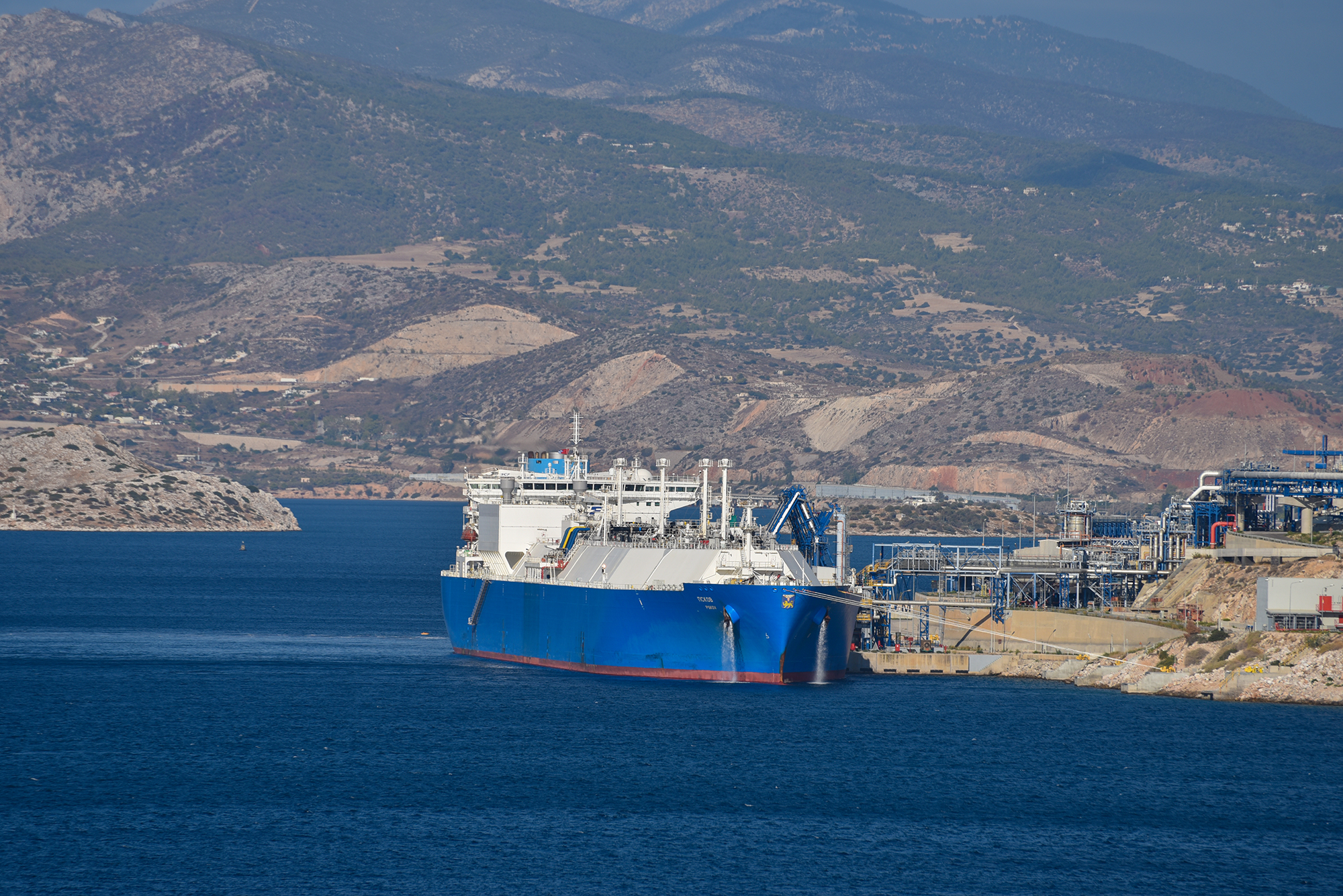
Cautious western reaction
In July 2024, the US Department of the Treasury proposed new sanctions against Russia's shadow fleet of tankers used for circumventing oil export schemes. However, the White House expressed serious concerns that such measures could significantly increase gasoline prices in the United States.
This was reported by The New York Times, citing anonymous sources among US officials, who confirmed that the Biden administration has serious concerns about the potential negative economic consequences of expanding sanctions.
Only 20 tankers from the shadow fleet that transport Russian oil at prices exceeding the established $60 per barrel limit are under US sanctions.
This restriction is part of the strategy to combat sanction evasion, but the US Department of the Treasury's proposal to extend these sanctions to the remaining shadow fleet could limit their sales or even force some of these vessels out of service, which is expected to have a significant market impact.
However, President Joe Biden's economic advisors are concerned that such actions could trigger a sharp rise in gasoline prices in the United States, which, in turn, could negatively affect the political situation in the country, particularly Biden's reelection campaign. This concern is related to the fact that rising fuel prices could cause social discontent and reduce support for the administration in upcoming elections.
At the same time, it is important to understand that if someone directly threatens US interests, sanctions are imposed immediately.
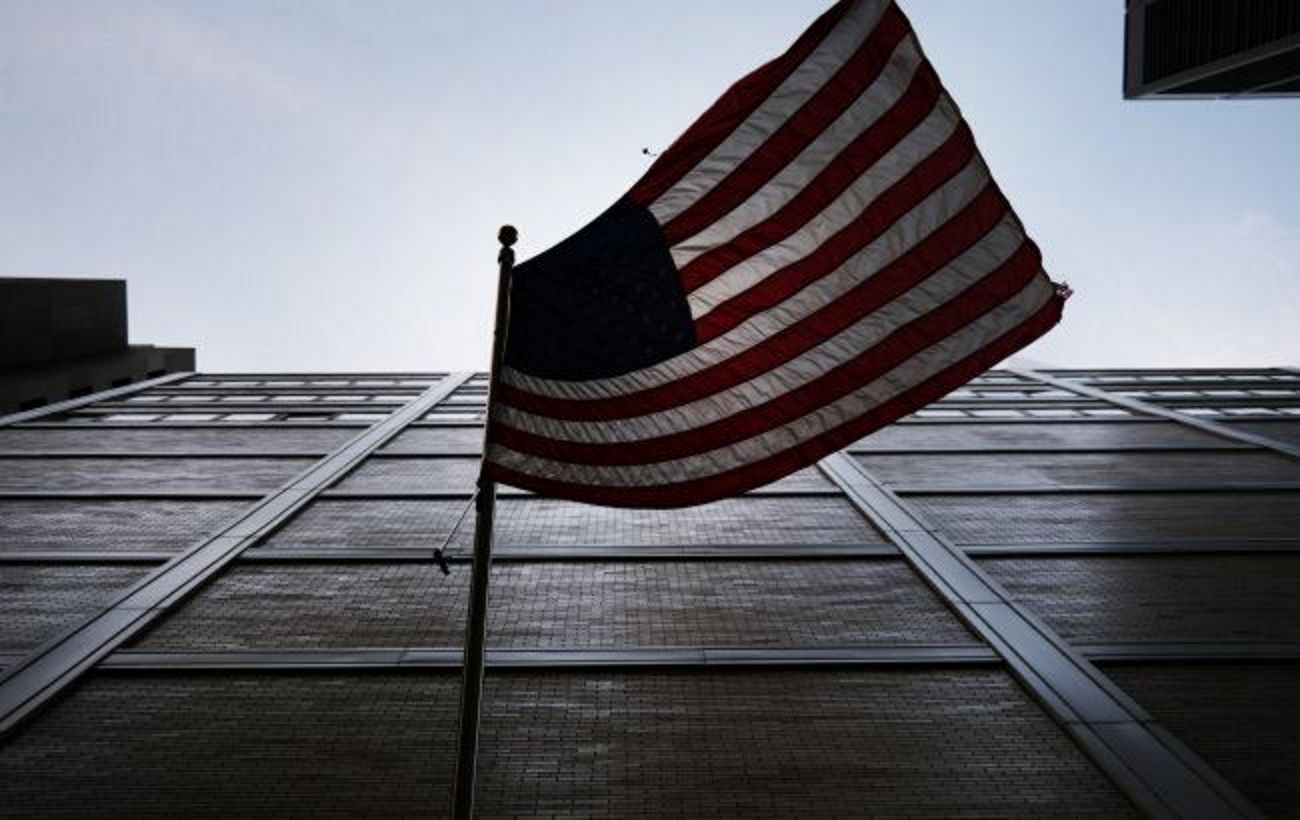
For example, the US recently imposed a new package of sanctions, including against liquefied natural gas (LNG) vessels. Seven vessels were immediately sanctioned, two recently refueled with gas at "Arctic-2." One provided false coordinates in the Barents Sea. And here's the most interesting part—four tankers had not yet transported gas but had recently changed ownership structure and already received sanctions.
Analysts believe the best solution could be the gradual introduction of punitive measures, which would allow for the minimization of market impact and prevention of sharp price spikes. However, this strategy has not yet received full support in the Biden administration, and the issue of sanctions remains under consideration.
At the same time, experts do not consider the risks associated with a possible increase in gasoline prices in the U.S. due to expanded sanctions against Russian tankers too high.
"America can regulate its domestic market. Therefore, they can fully manage this process through tax, regulatory policies, export restrictions, etc. This is purely a matter of US domestic economic policy. There should be no significant negative impact on the global market. The market is currently self-regulating. Moreover, Russia is not a dominant player in this field. It is large but not dominant. And in this case, other countries can easily replace it," says Anatoliy Amelin.
How Ukraine is fighting Putin's shadow fleet
Ukraine actively collaborates with international organizations and states to counter Russia's shadow fleet. The main efforts include cooperation with international bodies such as the European Union and the United Nations.
Additionally, on Monday, September 2, President Volodymyr Zelenskyy enacted new anti-Russian sanctions. These new restrictions target legal entities specializing in cargo transportation by air and sea, particularly those fulfilling orders for Russia's military-industrial complex (such as LLC "North-South Transport and Forwarding Company").
The President's Special Envoy on Sanctions Policy also noted that the authorities are working intensively with partners to impose sanctions on specific vessels and shipping companies and legal entities involved in servicing and recruiting crews for these vessels.
"We are also engaging in dialogues with various financial institutions to ensure that oil-related payments are only confirmed after thorough compliance checks. Moreover, considering the age and condition of the 'shadow' fleet, we emphasize that this poses a significant environmental threat, a concern for many coastal countries. The Baltic countries and Denmark are already actively supporting us in this, and we will continue to intensify our efforts," said Vlasiuk.
Meanwhile, according to MP Oleksiy Honcharenko, Ukraine needs to be even more active in this struggle, as it directly impacts Russia's weakening and the reduction of its revenues.
In his opinion, several initiatives could help limit Russia's oil revenues. Firstly, strict adherence to the sanctions regime and punishment for its violations, a ban on the import of Russian oil and restrictions on access to Western technologies for Russian extraction companies. Secondly, the oil supplies in each Western country should be diversified to reduce dependence on Russia and decrease its profits.
Yulia Klymenko is also convinced that Ukraine must do everything possible to make Russia's logistics for transporting this oil significantly more expensive. "The price of these resources must be very high so that Western countries lose interest in importing it to Europe or even consider banning it altogether," she adds.
Mykhailo Gonchar, President of the Centre for Global Studies "Strategy XXI," emphasizes the importance of increasing diplomatic pressure to strengthen the sanctions policy and transition to a policy of total economic isolation of Russia.
"There needs to be a serious diplomatic push to encourage our international partners, not just strengthen the sanctions policy. If they only strengthen it, Russia will find other mechanisms to circumvent the sanctions. We need to move towards a policy of total economic isolation of Russia by the West, meaning a complete cessation of trade. If we trade in one area but not in another, Russia will use this to bypass sanctions under one guise: selling one type of product or goods as another, which is not subject to sanctions," the expert believes.
Moreover, Ukrainian intelligence agencies and analytical centers continuously monitor the movements of Russian tankers, analyze financial and trade documents, and collaborate with international partners to identify illegal routes. A crucial part of the strategy is developing and implementing new technologies to detect and track "shadow" tankers. This includes advanced monitoring systems and participation in international projects to develop technical means of maritime transportation control.
Ukraine is also improving its national legislation to combat sanctions evasion. This includes tightening requirements for financial institutions, increasing fines for violations, and supporting international initiatives to strengthen sanctions against the Russian fleet.
At the same time, experts emphasize that to weaken the capabilities of Russia's shadow fleet, Ukraine itself must impose sanctions against it and intensify diplomatic efforts so that other countries follow its example.
"There are no sanctions from our side, but even theoretically, we cannot harm this shadow fleet, as these vessels do not use Ukrainian ports, nor do they use the Ukrainian financial and banking system. It would be more of a symbolic gesture. Our partners have much greater leverage, so we should focus on working more closely with them," comments Serhiy Kuyun.
Anatoliy Amelin also adds that Ukraine is not a country that determines global policy but is a country that works with those who do.
"Various coalitions help us secure the skies and provide aircraft supplies. I believe that Ukraine could initiate the creation of a coalition against Russia's shadow fleet. And Ukraine could start this coalition with stricter personal sanctions against the ships transporting oil, their owners, the companies contracting these ships, the ports receiving them, and their owners," he emphasizes.
Energy market expert Hennadiy Ryabtsev says that Ukraine already has the Yermak-McFaul international group, where specialists analyze the effectiveness of imposed sanctions and propose measures to strengthen them.
"The work of this commission is quite effective, although, in the context of increasing the effectiveness of sanctions against Russia's 'shadow' fleet, it could be intensified," Ryabtsev believes.
Yulia Klymenko adds that the work on such sanctions is "delicate," as extensive analytical work is required to identify all interested parties. Only in this case will it be effective.
In Honcharenko's opinion, Ukraine should impose sanctions against specific Russian tankers, as the country is the main beneficiary of Russia's problems and losses. He also notes that together with European parliamentarians and congressmen, he has appealed to the EU High Representative and other international leaders to impose sanctions on oligarchs and public figures who support Russia's aggression.
According to Bloomberg, a significant part of sanction circumvention is currently facilitated by companies such as Coral Energy, Nord Axis Ltd, QR Trading, Concept Oil Services, and Bellatrix Energy.
Experts conclude that combating oil shipments by the "shadow" fleet is not easy. However, it is already clear that existing sanctions mechanisms are not sufficient.
"Ultimately, this is not just a fight against Russia's gray exports; it's about countering all terrorist regimes that pose a threat to many countries and potentially the modern world order as a whole. Therefore, sanctions mechanisms must be expanded and refined," summarizes Andrian Prokip.

